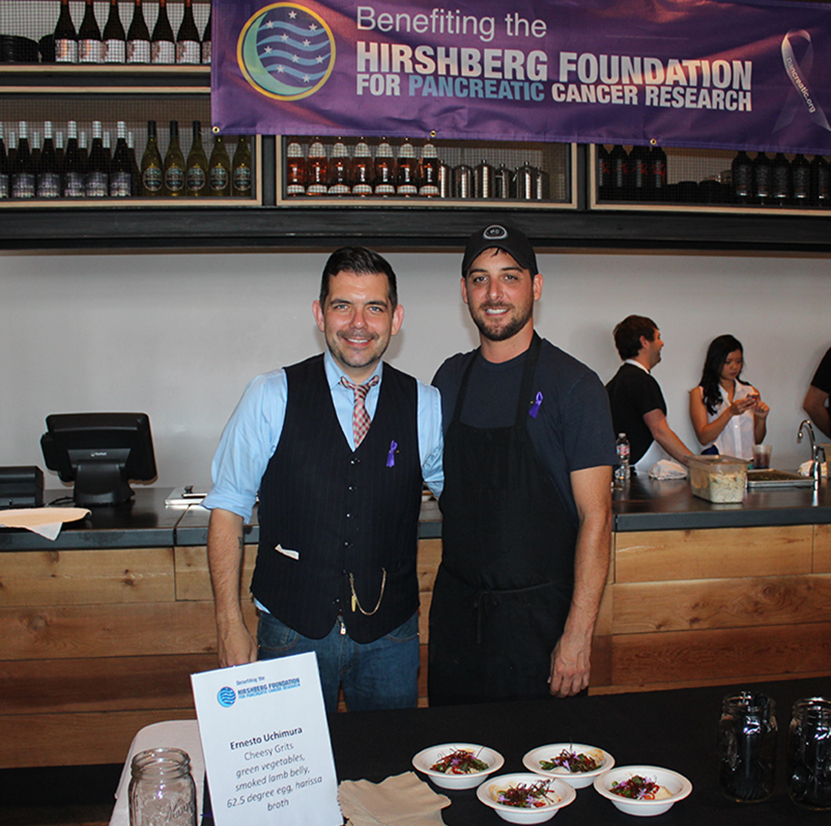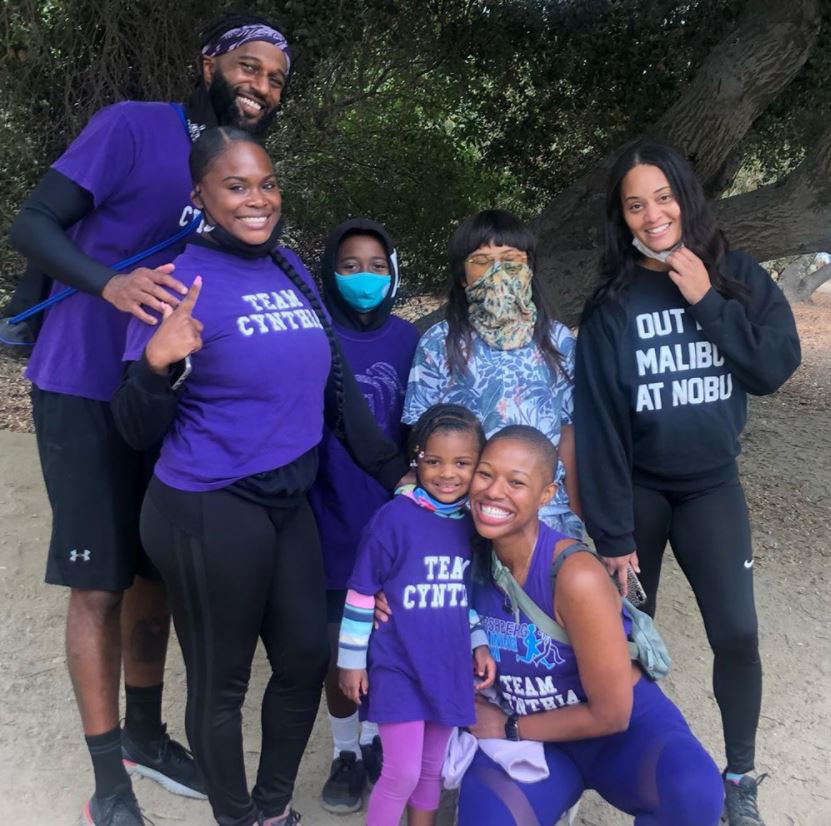The Hirshberg Foundation maintains its longstanding partnership with UCLA and is a crucial source of support for a wide range of research programs, patient care initiatives, and faculty members in the UCLA Agi Hirshberg Center for Pancreatic Diseases. Despite the difficulties of 2020, our supporters help us provide the financial stability necessary to face challenges with the innovation, compassion, and ingenuity that are hallmarks of the Hirshberg Foundation and the UCLA Hirshberg Center.
Each year, UCLA provides the Hirshberg Foundation with a detailed report of the advances being made and what we are accomplishing together. Below are a few of the achievements taking place at UCLA thanks to your continued support.
UCLA Agi Hirshberg Center for Pancreatic Diseases
In March of 2020, as the pandemic reached the United States, UCLA Health and the David Geffen School of Medicine at UCLA worked to transition many activities to virtual platforms. Once safety protocols were in place, pancreatic cancer care and surgery continued. Hirshberg Center’s pancreatic disease-focused integrated practice unit (IPU), which brings together surgeons, medical oncologists, radiation oncologists, pathologists, gastroenterologists, geneticists, and psychosocial care specialists, continued virtually to collaborate on care plans for individual patients. Amid the myriad challenges of 2020, delivering excellence in patient care remains a cornerstone for the Hirshberg Foundation and the Hirshberg Center.
Clinical Trials at UCLA
UCLA is currently participating in nine clinical trials aimed at improving treatment for pancreatic disease. One of these trials uses high-dose magnetic resonance imaging (MRI)-guided hypofractionated radiation therapy delivered using daily adaptive dose planning. This treatment model has been shown in a retrospective study to result in improved overall survival (relative to patients receiving lower radiation doses) in patients with locally advanced pancreatic cancer, without increasing the rate of serious gastrointestinal toxicity. Another high impact clinical trial is examining the effectiveness of nivolumab, a treatment combining immunotherapy with monoclonal antibodies, in conjunction with combination chemotherapy, which work synergistically to shrink tumors and stop the spread of cancer prior to surgery.
Ronald S. Hirshberg Translational Pancreatic Cancer Research Laboratory
Under the direction of Guido Eibl, M.D., Professor, Department of Surgery, David Geffen School of Medicine at UCLA, the Ronald S. Hirshberg Translational Pancreatic Cancer Research Laboratory is home to a robust research program focused on understanding the role of diet, obesity, and inflammation in pancreatic cancer. In May 2020, Dr. Eibl and his team were awarded a $5.75 million five-year grant from the National Cancer Institute to advance their pioneering work. The grant is funding an interconnected series of research projects with participating researchers from Cedars–Sinai Medical Center and the University of California, San Diego, collaborating with the team at UCLA. Dr. Eibl’s project is examining inflammation associated with body fat and how the mechanisms of this chronic condition can accelerate pancreatic cancer. This study is shedding new light on the mechanisms that influence the formation of pancreatic tumors and on ways to intervene and prevent cancer in people who have risk factors.
The Sahin-Toth Laboratory
The 2019 recruitment of Miklos Sahin-Toth, M.D., Ph.D., a leading pancreatic disease researcher and specialist in chronic pancreatitis and Garry Shandling Chair in Pancreatic Diseases, accelerated the center’s world-class research program, resulting in numerous recent publications and discoveries. As part of his pioneering work investigating the genetic foundations of chronic pancreatitis, Dr. Sahin-Toth helped create international guidelines for risk factors in chronic pancreatitis, which were recently published in Pancreatology. These risk factors include alcohol consumption, smoking, and certain genetic alterations. In addition, Dr. Sahin-Toth recently published an article in Gastroenterology discussing the ways that COVID-19 multiorgan failure resembles lipotoxic organ failure during severe acute pancreatitis. In both diseases, interstitial leakage of pancreatic lipase may occur resulting in adipose lipolysis and increased levels of unsaturated fatty acids. These toxic fatty acids cause mitochondrial injury and stimulate the excessive production and release of proinflammatory immune mediators (cytokine storm) that can drive disease progression and eventual multiorgan failure, including acute respiratory distress syndrome, the leading cause of COVID-19-related mortality. In 2021, Dr. Sahin-Toth received a new grant from the National Institutes of Health (NIH) to explore how genetic risk factors affecting the digestive enzyme chymotrypsin cause pancreatitis.
Psychosocial Care Via the Simms/Mann–UCLA Center for Integrative Oncology
The COVID-19 health crisis has brought into sharp focus the necessity for world-class psychosocial support and integrative care, particularly for patients going through cancer treatment and the Simms/Mann-UCLA Center for Integrative Oncology has continued to serve those needs. The broad range of services offered by the center, including psychosocial and psychiatric support, workshops and groups, nutritional guidance, and spiritual care, can make the difference between a cancer treatment journey defined by pain or galvanized by hope. The Simms/Mann team rapidly implemented telehealth operations to continue treatment during the pandemic, an option made even more crucial because of the vulnerability of the patient population. Elizabeth Cleary, Ph.D., a licensed clinical psychologist, join our Patient and Family Webinar Series to present “Coping Skills for the Pancreatic Community: Tools and Tips during COVID-19” in April 2020.
Simms/Mann clinician Sydney Siegel initiated a new program for patients undergoing chemotherapy without the support of friends and family by their side that was featured in the Los Angeles Times. Cancer survivors wrote anonymous letters to newly diagnosed patients sharing their thoughts, insight, and encouragement. These letters were then compiled into a booklet, titled From the Chemo Chair: My Heart to Yours, and distributed to UCLA hematology/oncology clinics so patients could receive them on their first day of treatment, accompanied by a playlist of inspirational songs selected by survivors.
Listen to the playlist here. If you would like more information, please contact Amy.
Hirshberg Foundation Seed Grant Program
In 2020, the Hirshberg Foundation Seed Grant Program began a new initiative to encourage collaboration among researchers. The program invited groups of two or more UCLA investigators to apply for a cooperative grant of $100,000 each to develop collaborative research in pancreatic cancer. The Hirshberg Foundation Seed Grant Program received three joint applications from teams of UCLA researchers for the 2020-2021 seed grant cohort. One grant was awarded to a promising research project led by Dr. Guido Eibl and Zsanett Jancso, Ph.D., Assistant Project Scientist, to investigate whether hereditary pancreatitis accelerates pancreatic cancer development. The study will offer critical insight into how hereditary pancreatitis-associated pancreatic cancer develops and how chronic inflammation promotes tumor growth in the pancreas.
Through our partnership with UCLA, we are empowering clinicians and researchers to connect with one another and find inspiration in collaboration. Even in the era of social distancing, we continue to facilitate connection through our Patient and Caregiver Webinar Series, which was created in lieu of an in-person symposium in 2020. Each session covers topics relevant to patients and caregivers and enables experts to speak directly with the people who are benefiting from their work. In this way, the foundation continues to center on the experience of patients and ensure that their needs are met and their questions are answered.
United in purpose, the UCLA Agi Hirshberg Center for Pancreatic Diseases is making tremendous progress toward improved treatments, outcomes, and quality of life for patients with pancreatic cancer. Together, we continue to provide world-class care and to seek improved standards of treatment through pioneering research.
Read the full summary here.

